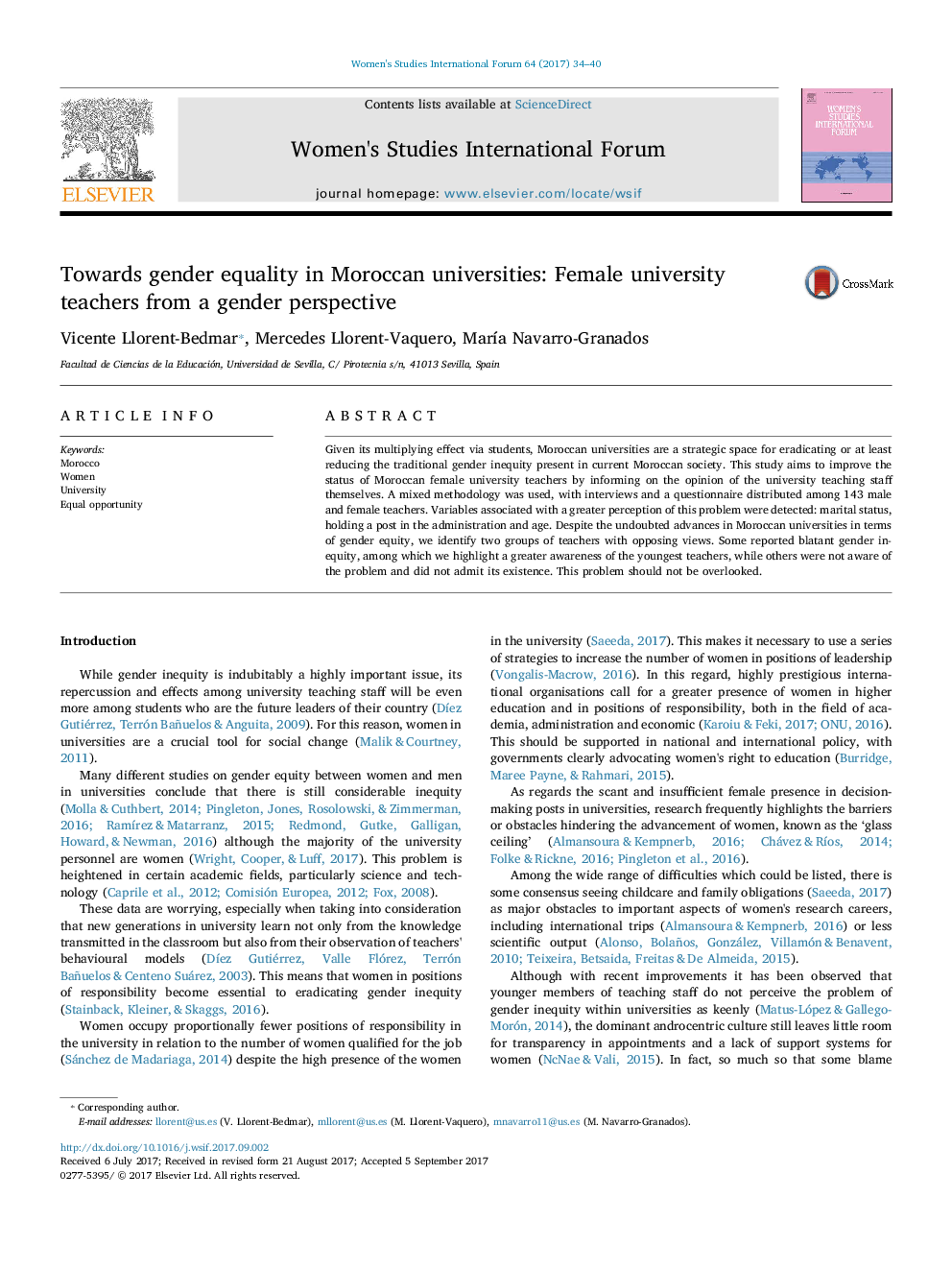ترجمه فارسی عنوان مقاله
در رابطه با برابری جنسیتی در دانشگاه های مراکش: معلمان زن از منظر جنسیتی
عنوان انگلیسی
Towards gender equality in Moroccan universities: Female university teachers from a gender perspective
| کد مقاله | سال انتشار | تعداد صفحات مقاله انگلیسی |
|---|---|---|
| 130156 | 2017 | 7 صفحه PDF |
منبع

Publisher : Elsevier - Science Direct (الزویر - ساینس دایرکت)
Journal : Women's Studies International Forum, Volume 64, September 2017, Pages 34-40
ترجمه کلمات کلیدی
مراکش، زنان، دانشگاه، فرصت برابر،
کلمات کلیدی انگلیسی
Morocco; Women; University; Equal opportunity;
ترجمه چکیده
با توجه به تاثیر چندانی از طریق دانش آموزان، دانشگاه های مراکش، فضایی استراتژیک برای ریشه کن کردن یا حداقل کاهش نابرابری جنسیتی سنتی موجود در جامعه جاری مراکش هستند. این مطالعه با هدف اطلاع رسانی به وضعیت معلمان دانشگاهی زن در مراکش انجام شده است. روش متداول با استفاده از مصاحبه و پرسشنامه توزیع شده میان 143 معلم مرد و زن توزیع شد. متغیرهای مرتبط با درک بیشتر این مشکل شناسایی شده است: وضعیت زناشویی، داشتن پست در دولت و سن. با وجود پیشرفت بدون شک در دانشگاه های مراکش با توجه به حقوق برابر، ما دو گروه از معلمان با دیدگاه مخالف را شناسایی می کنیم. برخی گزارش دادند که نابرابری جنسیتی شدید، که در آن ما آگاهی بیشتری از جوانترین معلمان را برجسته می کنیم، در حالی که دیگران از این مشکل آگاه نبودند و حضور خود را پذیرفتند. این مشکل نباید نادیده گرفته شود.

